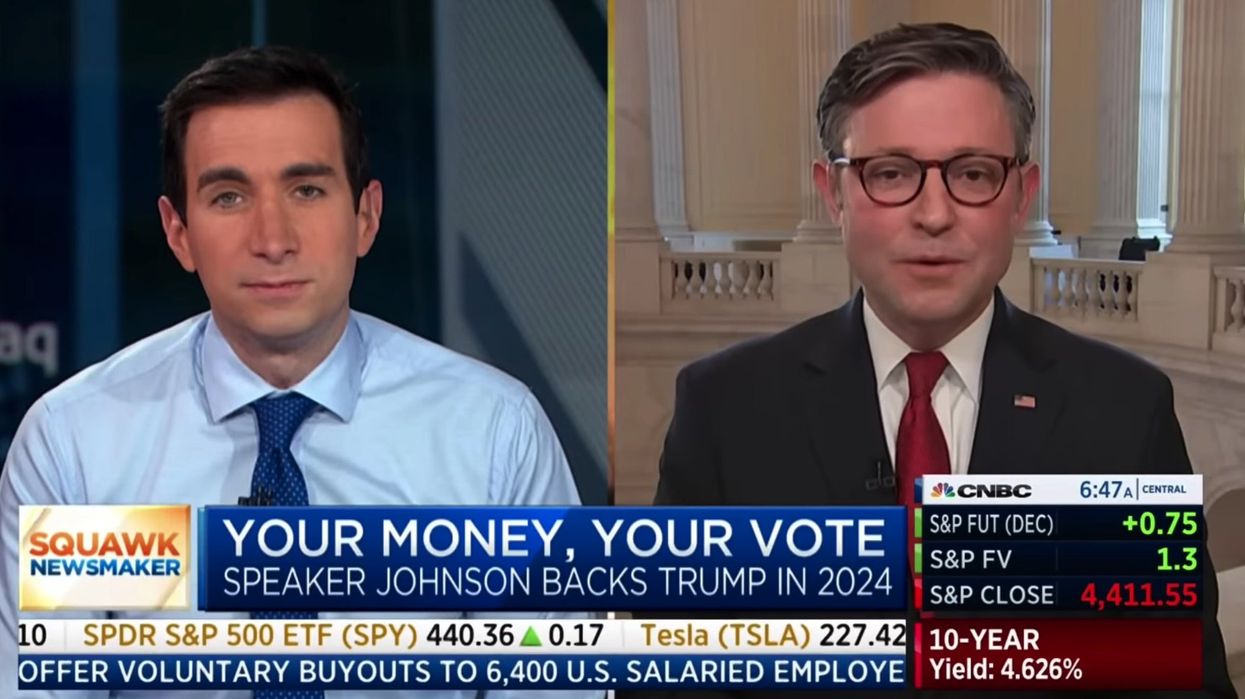
Image source: X screenshot

House Speaker Mike Johnson (R) explained Tuesday why the doctrine of "separation of church and state" — which doesn't exist in the Constitution — is routinely misunderstood.
In an interview on CNBC's "Squawk Box," host Andrew Ross Sorkin asked Johnson about the "public perception" of his decision to pray on the House floor after being sworn in as speaker, suggesting that he had violated some great principle that bans faith from the public square.
Johnson responded with a history lesson.
"Faith — our deep religious heritage and tradition — is a big part of what it means to be an American. When the founders set this system up, they wanted a vibrant expression of faith in the public square because they believed that a general moral consensus and virtue was necessary to maintain this grand experiment in self-governance that we created: a government of, by, and for the people. We don't have a king in charge," Johnson said. "So, we've got to keep morality amongst us so that we have accountability."
Johnson then explained why "the separation of church and state is a misnomer."
"People misunderstand it," he said. "Of course, it comes from a phrase that was in a letter that [Thomas] Jefferson wrote. It's not in the Constitution. And what he was explaining is they did not want the government to encroach upon the church — not that they didn't want principles of faith to have influence on our public life. It’s exactly the opposite."
Next, Johnson quoted from George Washington's famous farewell address, as well as John Adams.
"They knew that [faith] would be important to maintain our system,"Johnson explained.
"And that's why I think we need more of that — not an establishment of any national religion — but we need everybody's vibrant expression of faith because it's such an important part of who we are as a nation," he said.
And with that final remark, the interview concluded.
Indeed, the First Amendment addresses religious liberty with two important clauses.
First, the Establishment Clause states that "Congress shall make no law respecting an establishment of religion." Second, the Free Exercise Clause stipulates that Congress cannot make a law "prohibiting the free exercise" of religion.
As Johnson explained, Jefferson believed that through these two clauses, the founding fathers build "a wall between church and state" — a wall meant to keep government out of the free exercise of religion, not faith out of government.
Like Blaze News? Bypass the censors, sign up for our newsletters, and get stories like this direct to your inbox. Sign up here!